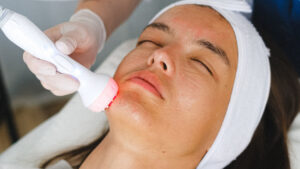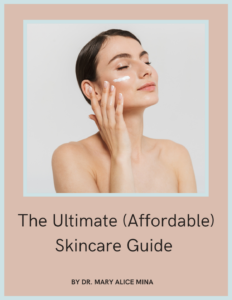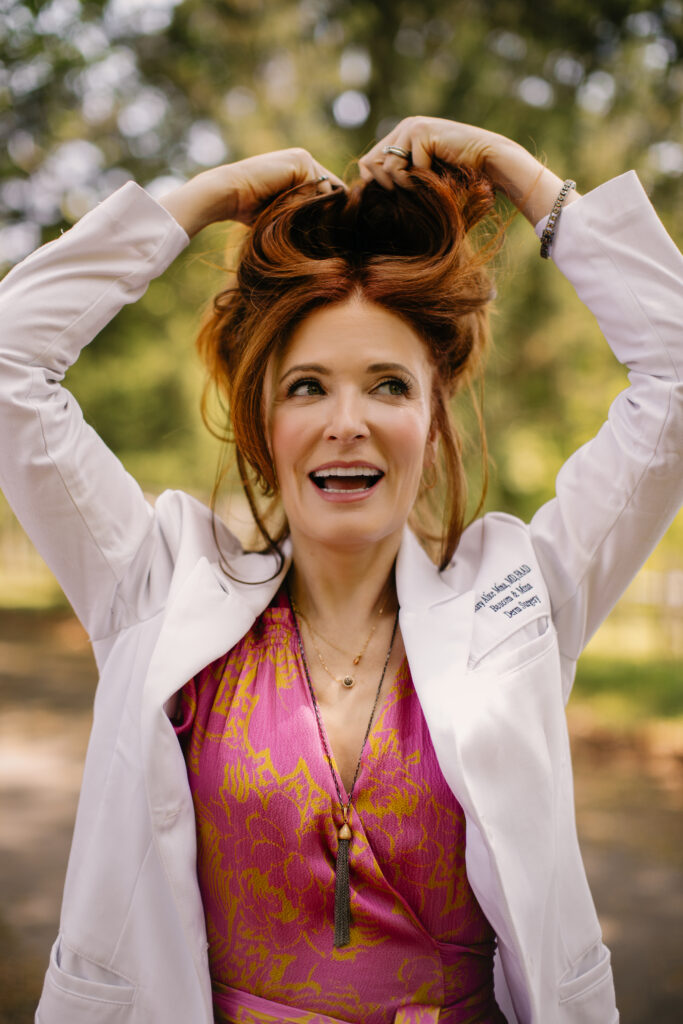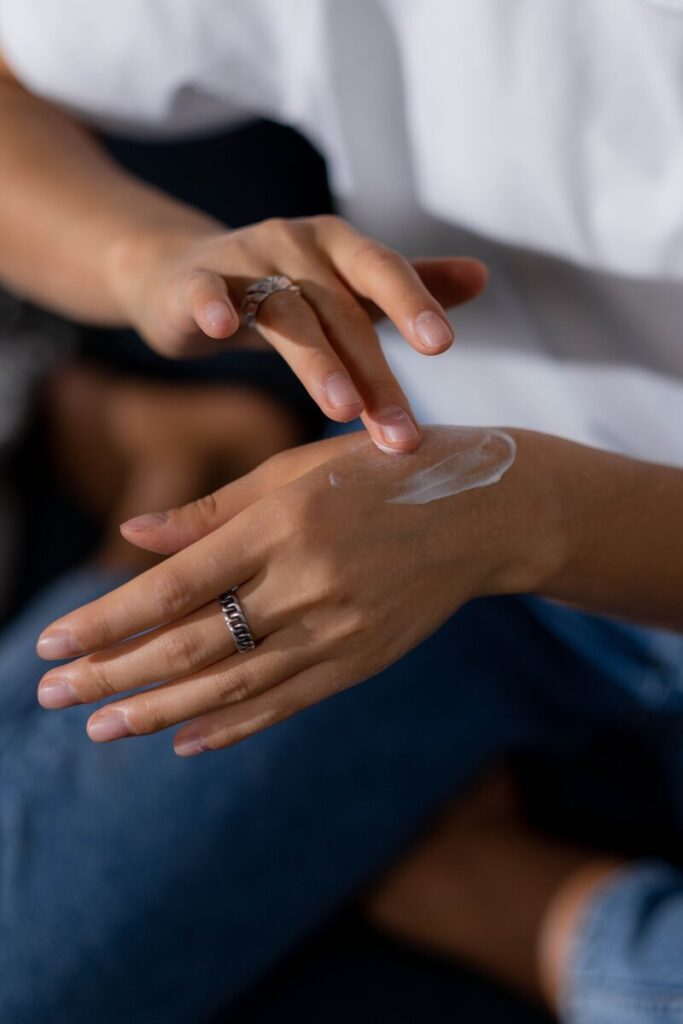We often associate our skin with our appearance only, but did you know that our skin actually reveals the inner workings of our bodies? The way you take care of your entire body shows up on your skin. More and more, we’re understanding this and spreading the word. Skincare isn’t just about applying the right creams in the right order; it starts from the inside out.
Welcome to the world of biohacking!
Biohacking seems to be the new buzzword in the health and longevity space, but what does it really mean? And how can we use it for our skin’s health? Basically, biohacking is about making small, manageable changes to your lifestyle and diet to optimize your health. For healthy skin, biohacking is a mix of skincare routines, dietary tweaks, and lifestyle adjustments. Put them all together and watch that skin glow!
Here are some biohacking strategies to achieve that radiant, healthy skin we all want:
1) Dietary Adjustments
- Protein Optimization: As we age, we tend to lose muscle mass, and our need for protein increases. But often, we end up eating less. Aim to eat 25g of lean protein with each meal or 1g per pound of your ideal body weight every day. This will help maintain your strength and vitality, as well as your muscle mass and strong bones.
- Hydration: Drinking plenty of water is crucial for keeping your skin hydrated and glowing. Try to drink at least 8 cups of water daily, but keep in mind that your needs may vary based on the weather and how active you are.
- Antioxidants: Foods rich in antioxidants, like berries, nuts, and leafy greens, help fight damage from free radicals. The more colorful your plate, the better for your health!
- Healthy Fats: Include healthy fats in your diet from sources like avocados, nuts, and oily fish. These fats help keep your skin elastic and moisturized.
- Fiber: A healthy gut means healthy skin! Eating plenty of fiber from fruits, vegetables, whole grains, and legumes is essential for good digestion. Women should aim for 25g of fiber daily, while men should aim for 35g.
- Reduce Sugar: We all know that too much sugar is bad, but it’s surprising how much hidden sugar is in the foods we eat. Reading labels can be eye-opening! Avoiding processed foods as much as possible can help a lot. A diet high in processed sugar can make your skin less supple and more prone to damage by binding to your collagen. Keeping your sugar intake in check will help keep your skin vibrant and healthy.
2) Supplements
Supplements are great, but they should be just that, supplemental to a healthy diet! Your body absorbs nutrients best from food, so make sure you’re eating well first.
- Collagen: Starting in our mid-twenties, we begin to lose collagen, and for post-menopausal women, this drop is even more significant! Studies show that taking hydrolyzed collagen for at least 90 days can improve skin hydration, elasticity, and reduce wrinkles. Add a scoop to your daily smoothie or coffee to see the benefits!
- Vitamin C: This vitamin is crucial for collagen production and protecting your skin from sun damage. While I love using it as a serum, getting Vitamin C from fruits and veggies is essential for internal collagen production. So, load up on those citrus fruits and leafy greens!
- Omega-3 Fatty Acids: Found in fish oil, omega-3s help reduce inflammation and keep your skin hydrated and healthy. Aim to eat fatty fish like salmon at least twice a week or consider taking a supplement.
- Probiotics: Our modern diet can mess up our gut health, which in turn affects our skin. Consider taking a probiotic or eating probiotic-rich foods like yogurt, kefir, sauerkraut, or kimchi to support a healthy gut-skin connection.
- Vitamin D/K2: Many people today don’t get enough vitamin D, so it’s a good idea to check your levels to see if you need a supplement. It can be tough to eat enough foods rich in vitamin D, and while our skin can make vitamin D from sunlight, not everyone can do this efficiently, and UVB rays can have side effects. Your best option is to check your levels and take a supplement if you’re low. Pair it with K2 to help your body move calcium effectively in your bones.
3) Skincare Routine
- Cleansing: Start with a gentle cleanser to wash away dirt and impurities without taking away your skin’s natural oils. Make sure to do this every evening—it’s a must! In the morning, cleansing is optional, but it can help you feel fresh!
- Moisturizing: Keep your skin hydrated with a gentle moisturizer. Look for one with ingredients like niacinamide, ceramides, and hyaluronic acid to give your skin a boost of moisture.
- Sun Protection: Don’t forget your sunscreen! Putting it on every day is important to protect your skin from harmful UV rays, which can cause early aging and increase the risk of skin cancer. Your skin will thank you later!
- Retinoids: Want to give your skin a little extra love? Add retinoids to your routine! They help boost collagen and reduce the look of fine lines and wrinkles, making your skin look younger and healthier.
With this simple routine, you’re on your way to happy, glowing skin!
4) Lifestyle Changes
- Sleep: Try to get 7-9 hours of good sleep each night. This allows your skin to repair and refresh itself, helping you wake up glowing!
- Stress Management: Find ways to relax and reduce stress. Activities like meditation, yoga, or deep breathing can work wonders. Chronic stress can harm your skin and overall health, so take some time for yourself each day.
- Exercise: Stay active! Regular exercise boosts circulation, which helps nourish your skin cells and keeps your skin healthy. Remember, it’s not just about cardio—strength training is also super important for your muscles, brain, skin, and bones!
- Avoid Smoking and Limit Alcohol: Smoking and drinking too much alcohol can speed up aging and cause various skin problems. They can also lead to serious health issues, so it’s best to avoid smoking and limit your alcohol intake. Your skin and body will thank you!
5) Advanced Techniques
- Red Light Therapy: This treatment uses special light to boost collagen production and reduce inflammation. It helps your skin heal and gives you a youthful glow without any invasive procedures.
- Micro-needling: Micro-needling uses tiny needles to create small injuries in the skin, which encourages your body to produce more collagen and elastin. This can improve skin texture, firmness, and reduce the appearance of scars and fine lines.
- Regenerative Aesthetics: This exciting field is growing fast! Treatments like exosome therapy, platelet-rich plasma (PRP), and biostimulants use your body’s natural healing abilities to keep your skin youthful. For example, PRP uses your own blood to rejuvenate the skin.
Skincare is so much more than just the products you use—it’s about your entire lifestyle! You don’t need to do everything at once. Start with little adjustments, like drinking more water or getting enough sleep, and watch how these positive choices build up to a healthier, glowing you. Making minor changes today can lead to big improvements over time. Your skin will thank you for the care you put in, reflecting your overall well-being beautifully!
Tune in to this week’s podcast with Dr. Jen Haley as she covers how diet affects skin, favorite skin-friendly foods, the skin-gut-brain connection, the role of exercise, and top tips for healthy skin through inner health.
Find Dr. Haley here:
https://www.instagram.com/drjenhaley/
https://www.linkedin.com/in/jennifer-haley-md-faad-a4283b46/
A new podcast episode drops every Monday!
For more great skin care tips, subscribe to The Skin Real Podcast.











